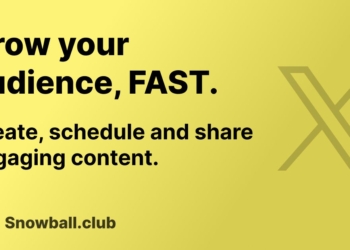Content Harmony vs. Pageoptimizer: A battle of SEO titans. We’ll analyze their strengths, weaknesses, and pricing to reveal the ultimate champion in this fierce competition.
Comparison Content Harmony and Pageoptimizer
Choosing the right SEO tool can be a game-changer for your online presence. Both Pageoptimizer and Content Harmony offer powerful features designed to streamline your SEO workflow and boost your search engine rankings.
This detailed comparison delves into the functionalities, strengths, and weaknesses of each platform to help you make an informed decision based on your specific needs and priorities.
Content Harmony
Content Harmony emphasizes a structured content workflow, utilizing AI and competitor analysis to create data-driven content briefs that fuel high-performing content creation.
Content Harmony: Overview
Content Harmony is a content marketing platform that focuses on streamlining the content creation process through AI-powered research, detailed content briefs, and performance grading.
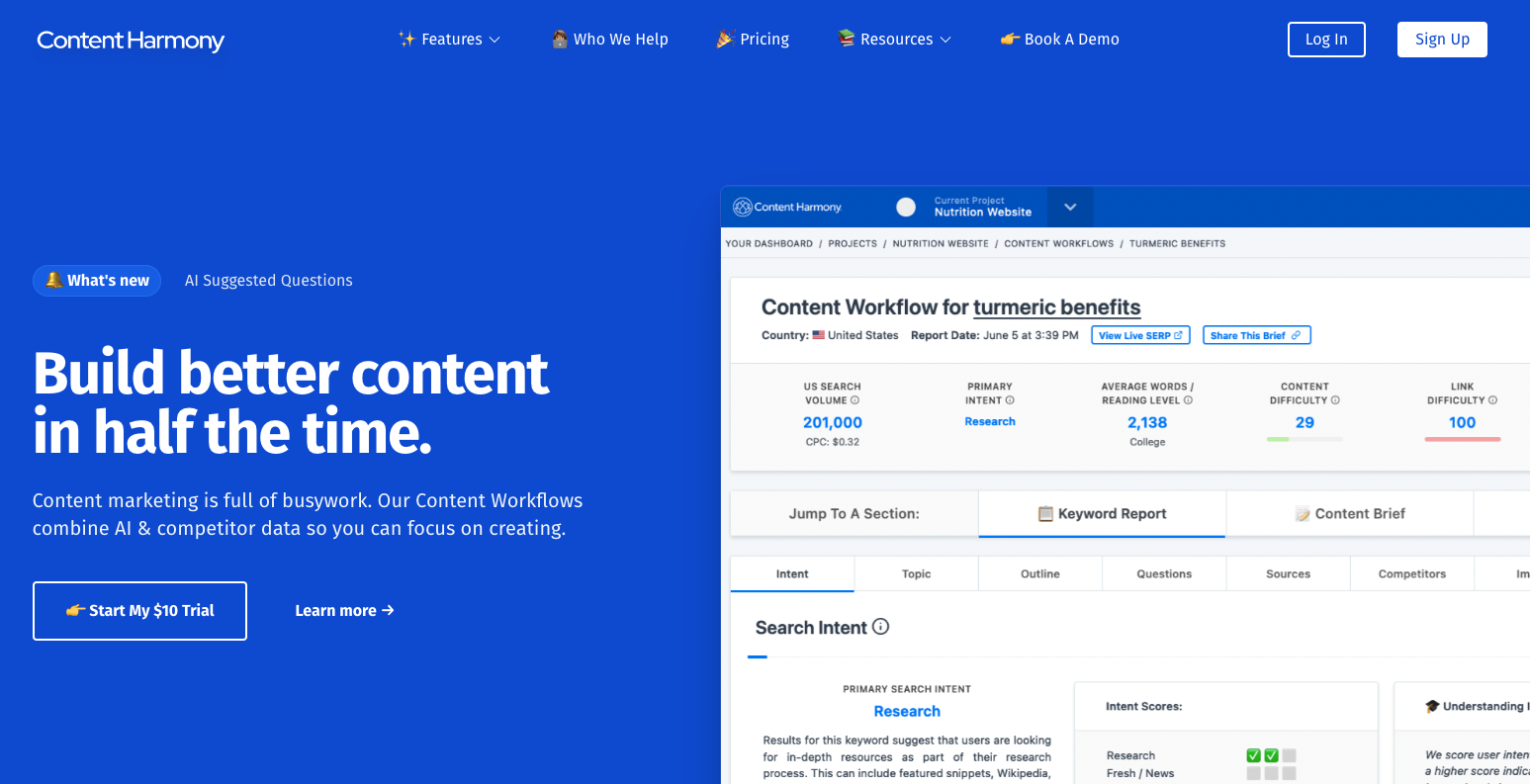
Content Harmony: What It Does
- Keyword Research: Analyzes search intent, identifies relevant keywords and questions, and provides competitor outlines.
- Content Briefs: Generates structured content briefs with key insights, recommended headings, and linking opportunities.
- Content Grader: Evaluates content drafts against the generated brief to ensure comprehensiveness and SEO alignment.
Key Features of Content Harmony
AI-driven search intent analysis
Detailed, customizable content briefs
Content grading and optimization suggestions
Collaboration features for teams
Integration with Google Search Console
Who is Content Harmony For?
Content marketing teams focused on creating high-quality, SEO-driven content
Agencies looking to standardize their content briefing process
Businesses seeking to improve content strategy and ROI
Pros of Content Harmony
- Data-Driven Content Strategy: Leverages search intent and competitor analysis for informed content creation.
- Streamlined Workflow: Standardized briefs and grading tools enhance team collaboration and efficiency.
- Content Quality Improvement: Focus on key insights and optimization suggestions ensures high-performing content.
Cons of Content Harmony
- Limited Content Generation: Primarily focuses on research and briefing, requiring external tools for content creation.
- Pricing Based on Usage: Can become expensive for high-volume content producers.
Comprehensive content research and analysis
Structured content briefs for improved workflow
Content grading and optimization features
Does not include content generation capabilities
Usage-based pricing may not suit all budgets
Content Harmony Pricing
Usage-based pricing starting at $199/month for 25 content workflows.
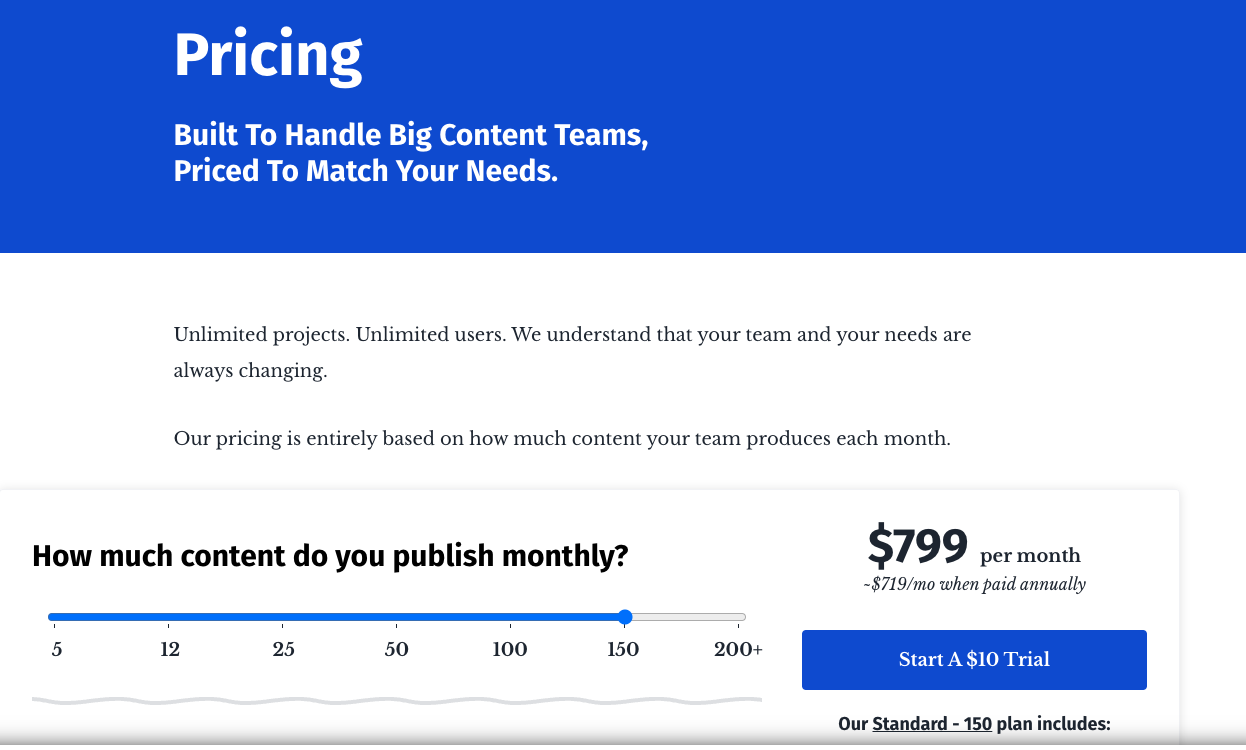
What Users Say About Content Harmony
Content Harmony receives positive feedback for its intuitive platform, detailed briefs, and impactful content strategy guidance.
What’s Missing in Content Harmony
Integrating a content generation tool within the platform would enhance its value proposition.
Final Thoughts on Content Harmony
Content Harmony excels at providing data-driven insights and structured workflows to create high-quality content that ranks.
Pageoptimizer
PageOptimizer Pro emphasizes its data-driven approach to on-page SEO, aiming to equip users with actionable insights gleaned from analyzing top-performing competitor pages.
Pageoptimizer: Overview
PageOptimizer Pro is an SEO tool that analyzes web pages and provides data-backed recommendations for on-page optimization.
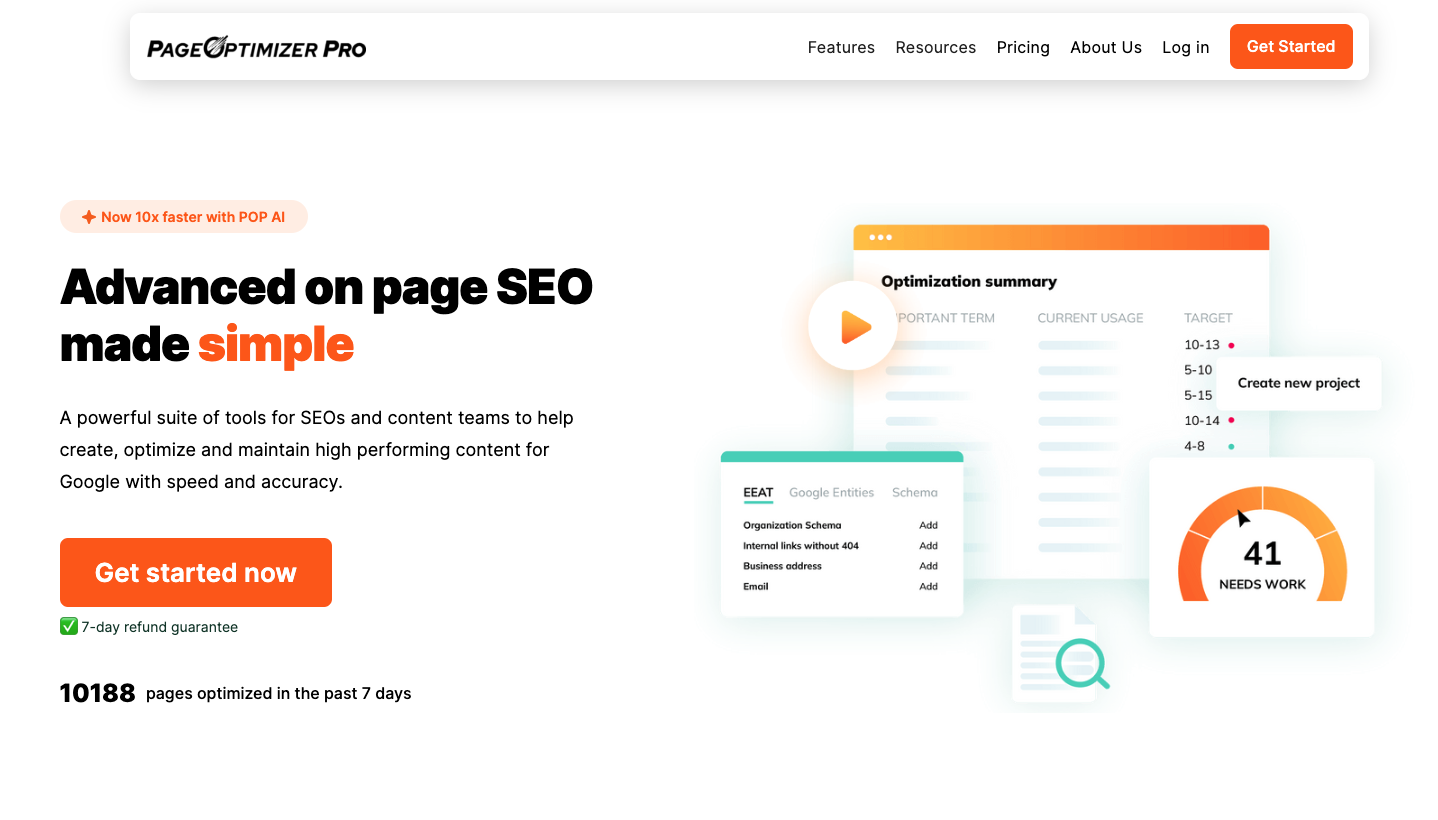
Pageoptimizer: What It Does
- Competitor Analysis: Identifies on-page SEO factors contributing to the success of high-ranking competitor pages.
- Content Optimization Scoring: Assigns an “Optimization Score” to web pages, highlighting areas for improvement.
- Keyword & Content Briefs: Generates detailed briefs outlining optimal keyword usage, content structure, and word count.
- On-Page SEO Monitoring: Tracks on-page SEO performance over time and identifies areas needing attention.
Key Features of Pageoptimizer
- Data-Driven Insights: Utilizes a reverse-engineering approach based on analyzing successful competitor pages.
- POP Content Brief: Provides a structured framework and actionable steps to optimize content for specific keywords.
- Chrome Extension: Enables real-time content analysis and optimization suggestions within the browser.
- AI Writer Integration: Offers AI-powered content generation capabilities to expedite content creation.
- E-E-A-T Analysis: Assesses content for Expertise, Experience, Authoritativeness, and Trustworthiness signals.
Who is Pageoptimizer For?
SEO professionals and agencies looking to enhance their on-page optimization strategies.
Content creators seeking data-backed guidance for creating high-performing content.
Businesses prioritizing detailed on-page analysis and optimization.
Pros of Pageoptimizer
- Science-Backed Methodology: Grounds its recommendations in data analysis of Google ranking factors.
- Comprehensive On-Page Optimization: Provides granular insights and recommendations for all aspects of on-page SEO.
- Competitor-Focused Approach: Enables users to identify and capitalize on competitor strategies.
- Actionable Content Briefs: Offers clear and concise steps to create and optimize content for improved rankings.
Cons of Pageoptimizer
- Steeper Learning Curve: Mastering the depth of features and data analysis may require time and dedication.
- Pricing Based on Credits/Usage: Can lead to higher costs for websites with a large number of pages or frequent optimization needs.
Data-driven on-page SEO analysis
Competitor-focused insights
Comprehensive content optimization guidance
Actionable optimization briefs
Steeper learning curve
Credit-based pricing may increase costs for some users
Pageoptimizer Pricing
- Single User Plans: Starting at $34/month
- Team Plans: Starting at $1200/year
Credit-based pricing for specific features (EEAT, NLP, AI credits)
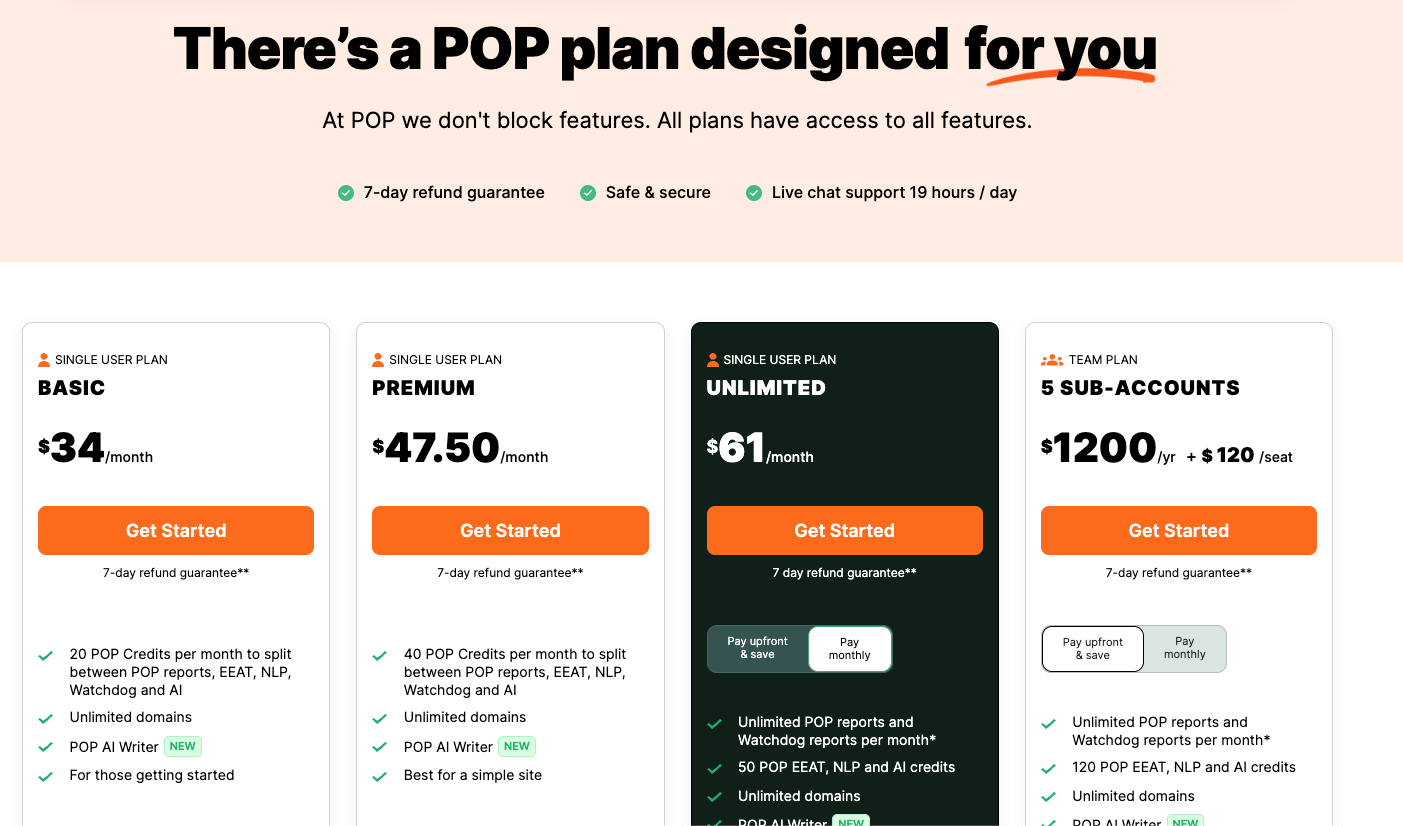
What Users Say About Pageoptimizer
POP garners praise for its ability to deliver significant SEO improvements based on its data-driven approach. Users appreciate its detailed on-page analysis and the effectiveness of its content briefs in guiding optimization efforts.
What’s Missing in Pageoptimizer
Less emphasis on off-page SEO factors and backlink analysis.
Limited features for managing and tracking keyword rankings directly within the platform.
Final Thoughts on Pageoptimizer
PageOptimizer Pro excels as a powerful on-page SEO tool, ideal for users who value a data-backed approach and in-depth analysis. Its focus on competitor research, content optimization scoring, and actionable insights makes it a valuable asset for SEOs and content creators seeking to elevate their on-page game.
Content Harmony vs Pageoptimizer: Which One Should You Choose?
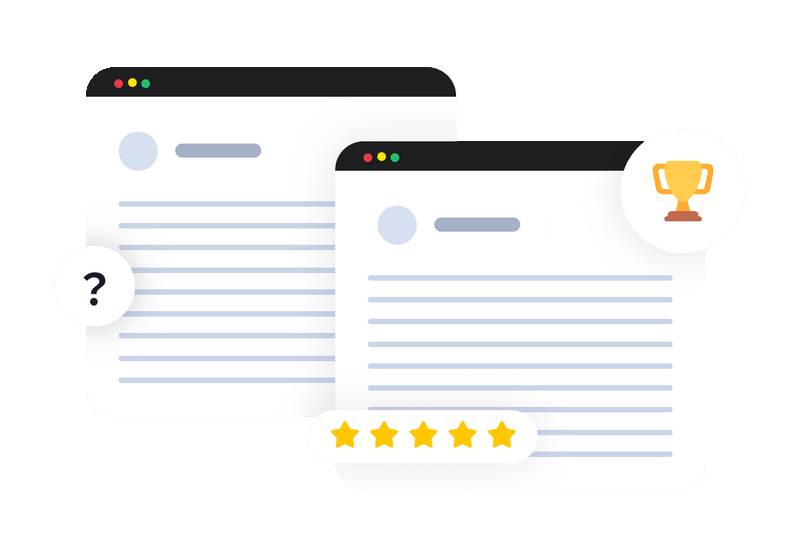
Choose Content Harmony if:
– Your primary focus is on creating high-quality, SEO-optimized content based on in-depth research.
– You need a structured content briefing process to improve team collaboration and content consistency.
– You’re willing to invest in a platform that prioritizes data-driven content strategy and performance.
Choose Rank Math if:
– You manage your website on WordPress and prefer a plugin that integrates seamlessly with your existing workflow.
– You are looking for a cost-effective solution, especially if you can benefit from the extensive features offered in the free plan.
– You value having access to a large and active community for support and resources.
– You need a tool with multilingual support for content creation.
search engines ranking patterns to create content that dominates
searches, all without penalty risk.
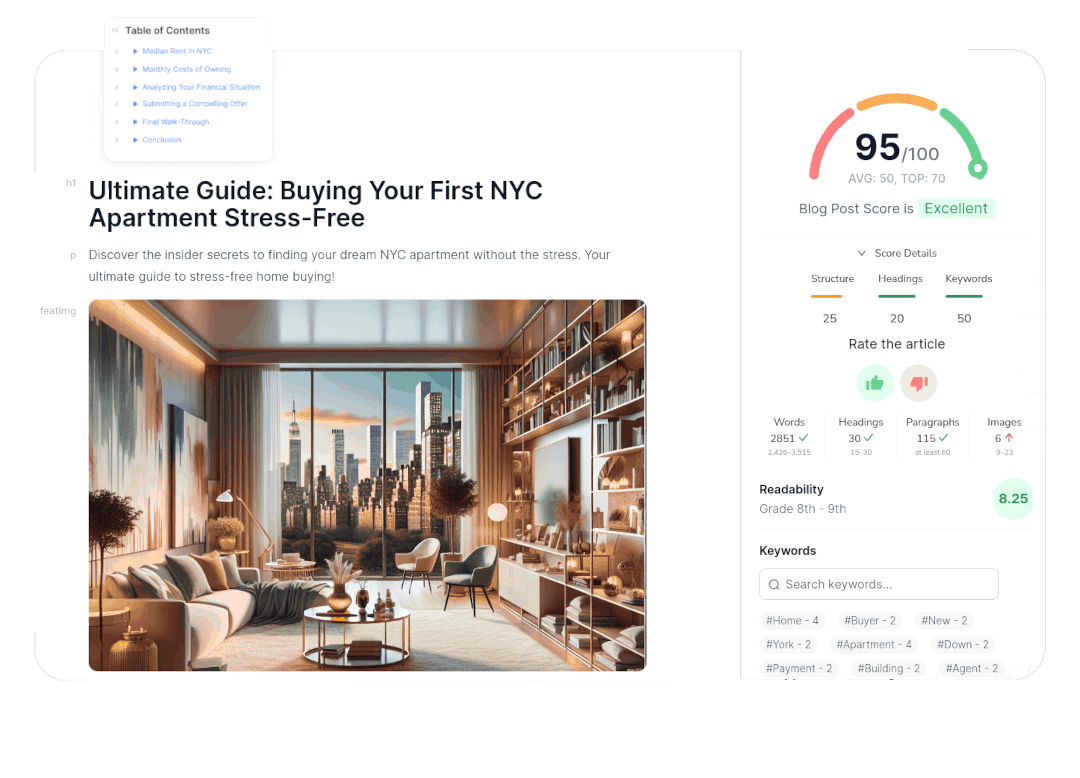
Why Consider SEOrocket Over Content Harmony and Pageoptimizer?
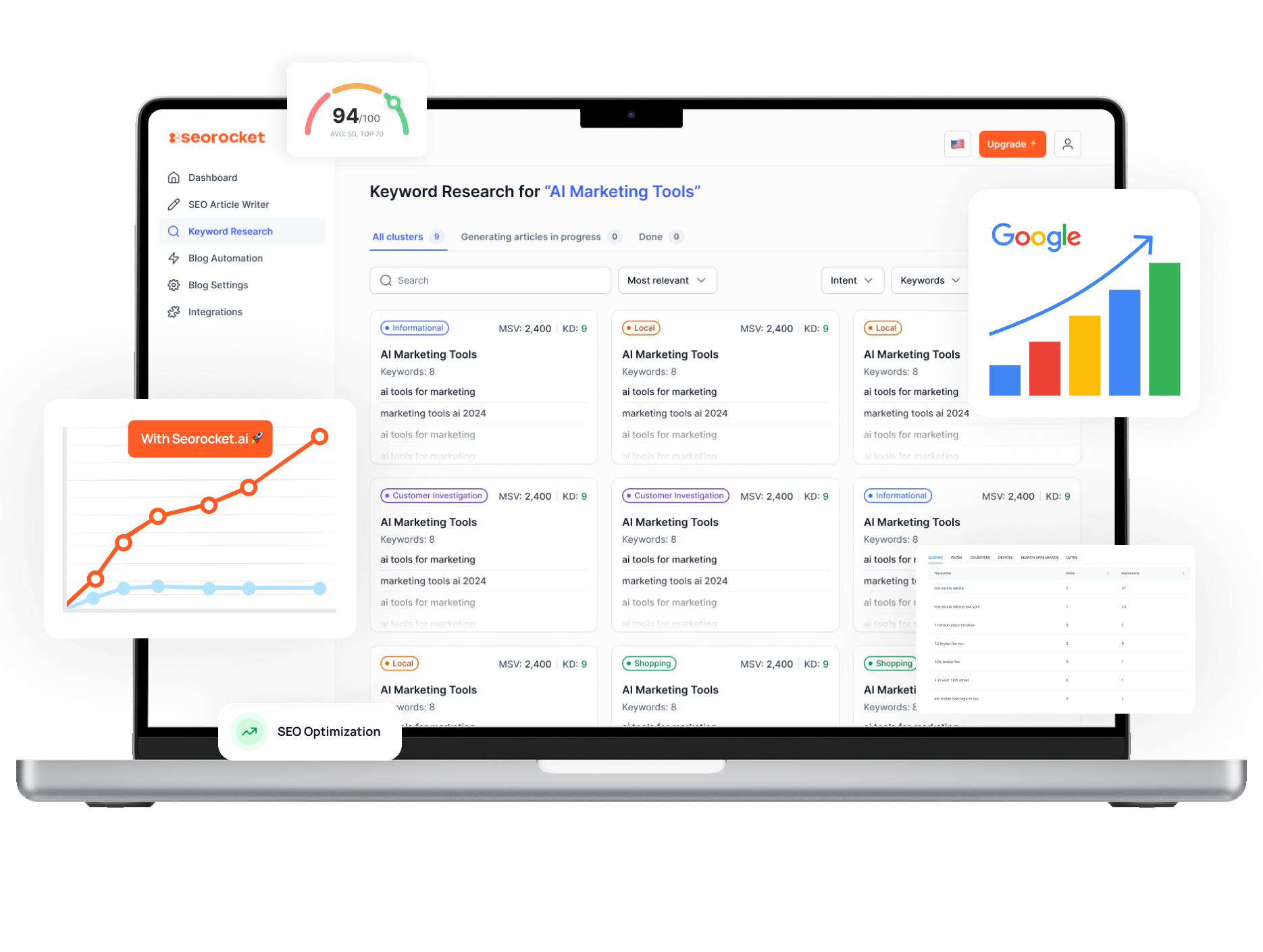
While Content Harmony and Pageoptimizer AI are strong contenders in the content optimization and generation landscape, Seorocket stands out as a comprehensive and cost-effective alternative. Here’s why:
By choosing Seorocket, you can streamline your content marketing efforts, save time and resources, and achieve significant improvements in your search engine rankings.


